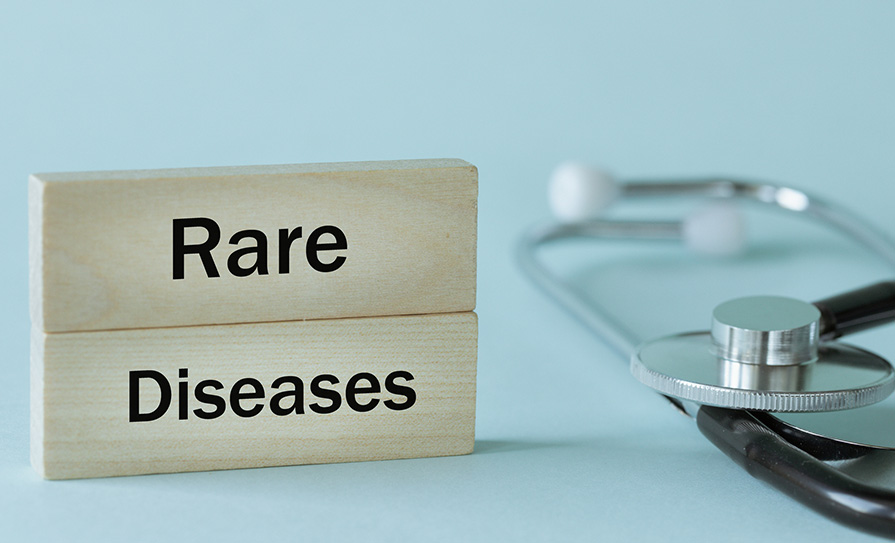In the context of the Covid-19 pandemic and a recently conducted health needs assessment, Irish Prison Service Executive Clinical Lead Dr John Devlin discusses the lessons learned and the changes ahead for the service. Niamh Quinlan reports
Due to the experience of the Covid-19 pandemic, the Irish Prison Service (IPS) exists in a “new normal”, according to Executive Clinical Lead, Dr John Devlin.
Speaking to the Medical Independent (MI), Dr Devlin said many activities in prisons are “back to normal”, including recreation, education, and training. According to the IPS, as of 12 December, entitlement to weekly physical visits has also been restored in all prisons.
“All of those things are back, but I think everybody is more careful in relation to respiratory hygiene, handwashing, and all the rest of it. But [that is] not to say that we’re not ready to ramp up again if needs be,” stated Dr Devlin.
He added: “Infections are never going to go away, so it’s a question of what next? I’ve been around long enough; I’ve been there for swine flu as well. We just have to hope for the best and plan for the worst.”
Due to be published early this year, the IPS health needs assessment will “set the agenda” for healthcare in the service for the next 10 years.
The terms of reference for the review were decided in August 2018, which followed the selection of the IPS Executive Clinical Lead in July 2018. According to the then Minister for Justice Charlie Flannagan: “This assessment will determine the health status of prisoners, the need and demand for healthcare services, while also establishing the current level of healthcare service provision in prisons.”
Although its progress and publication were delayed by Covid-19 restrictions, the assessment is a “landmark piece of work”, Dr Devlin said.
Recommendations
The health needs assessment will consist of one national report and 12 individual prison reports. In total, 60 recommendations are made in the assessment, which can be divided broadly into two main areas: Firstly, looking at strengthening healthcare in the IPS; and secondly, how to enhance and improve governance within the system.
How to strengthen healthcare within the IPS consists of “six key building blocks”, Dr Devlin added. These are dealing with general health issues, women’s health (particularly health provision in the new female unit in Limerick Prison), health information systems, infection control, addiction, and mental health.
“There is a high level of mental health conditions within the prison population,” said Dr Devlin. “As indeed, there are also issues with addiction and that is the nature, unfortunately, of the population.”
The assessment identified capacity within the National Forensic Mental Health Service (NFMHS) as an issue that needs to be addressed. While the NFMHS does provide an in-reach service for vulnerable individuals, and NFMHS specialists and community nurses are working in the IPS, “it’s not the same as managing an individual in a hospital, which is what we would think is required,” said Dr Devlin.
Facilitating a more supportive environment and better organisation of mental health services in prisons are also being looked at as part of the recommendations.
Dr Devlin said: “There is a strong argument that if we centralised a lot of our resources, maybe within a Dublin prison, that we could focus and concentrate our resources in an environment… ensure that it is substance-misuse free and ensure that it is violence free, it would provide a much more stable environment for people who have obviously got an acute medical condition.”
“And when they’re coming back from the [NFMHS facility] after admission, that stable environment would make it more likely that they [can remain] on the pathway to recovery.”
Dr Devlin added that the IPS is not waiting for the report to be published to action any of the recommendations.
He said: “Very shortly, we’re going to be recommencing the drug treatment programme in Mountjoy [prison]. Unfortunately, that had to stop during Covid.”
“We’re also working on… the development of a new drug strategy, which is about keeping drugs out of prisons and also in terms of how we manage clinical addiction within prisons.”
Dr Devlin added that the IPS is also working to “strengthen our GP resources across prisons, because a number of years ago, we had an over-reliance on locums”.
“And over the last number of years, we’ve been steadily appointing a number of permanent doctors into each prison. But the important thing is that these are doctors who are specialty-trained.”
Training
To help strengthen general practice resources within the IPS, it is examining expanding GP and nursing training within the service.
Dr Devlin said that GPs who work in prisons are specially trained by the ICGP and have additional qualifications to work in the service, such as addiction-related qualifications.
He said: “What… we would like to do is to take that even further and to make a number of our prisons training locations for general practitioners.”
Currently, GP training is located at the Dóchas Centre, the medium-security prison for female, adult offenders in Mountjoy prison.
“What we’d like to do is to roll that out further now to a number of other prisons,” said Dr Devlin.
With “an extra little bit of work”, Dr Devlin said that other prisons could be enabled to become training locations.
“That would be good for prisons and also good for the trainees because they could learn about the issues that relate to prison medicine. And, ultimately, I would hope that we would be able to – and working with the College [ICGP] – perhaps develop prison medicine as a subspecialty in itself.”
Dr Devlin told MI that the IPS has had “early discussions” with the ICGP about developing prisons as training locations.
In regard to nursing in prisons, he added that the IPS “would like to create additional opportunities for career progression, including specialisation of nursing within our prisons”. This expansion would be seen as making the prison service attractive as a future career possibility, according to Dr Devlin.
This would involve identifying nurses with particular disease interests who could receive specialist training and provide clinics in different prisons.
“We’ve done that, for example, in the area of infection control. So I think we need to do that now for other areas like diabetes, heart failure, and lung disease.”
Infection control
Although the report contained many recommendations, Dr Devlin praised the work of IPS employees during the pandemic.
“The first thing was that they were very impressed by the dedication, the commitment and the quality of our workforce,” he told MI. “They [did] a really good job in difficult and challenging circumstances. And… in terms of the service that is being provided, the general care is very good.”
The assessment found strength in the GP, nursing, and pharmacy workforce, along with the infection control and procedures for Covid-19.
According to Dr Devlin, by virtue of a prison being an enclosed environment, track-and-trace for Covid-19 infection was “a lot easier” than in the community.
“From a very early point, then, we decided that we would take over contact tracing within prisons, because first of all, we had the staff,” he said. “Secondly, we could train them.”
Another “key difference” was the IPS’s decision to contact-trace those who were symptomatic, rather than wait for a positive result.
“[That] gave us a head start in relation to when somebody that might be potentially infectious and then preventing that infection from being transmitted onwards,” he said.
The World Health Organisation (WHO) picked up on these methods and this model was presented to the WHO in April 2020. According to Dr Devlin, this model of contact tracing is now used in over 100 countries.
Additionally, the IPS is part of the Five Nations Prison Health Network, consisting of Ireland, Northern Ireland, England, Scotland, and Wales, where each country shares their experience of the Covid-19 pandemic within its prisons.
“Covid is a whole-of-prison issue,” said Dr Devlin. “Everybody in the prison has a role to play and that was our message through Covid, all the time: Everybody, from the governor to the cleaner, you’re all as important to infection control as each other. And that if one leg… breaks down the whole thing’s going to collapse.”
Infection control continues in the IPS as the service and the world return to a new normal. Dr Devlin highlighted the co-circulation of influenza and Covid-19 and the prevalence of tuberculosis in prisons as concerns for the IPS.
He added that the service continues to promote vaccination for Covid-19. There is also a plan to begin mpox vaccinations early this year and a hepatitis C screening and treatment programme that is being “progressively” rolled out.













Leave a Reply
You must be logged in to post a comment.